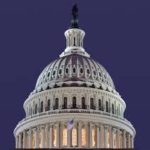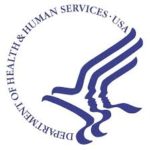The following is the latest health policy news from the federal government for September 15 – 21. Some of the language used below is taken directly from government documents.
 Congress
Congress
- With only nine days left in the current federal fiscal year, Congress still has not agreed on any kind of spending bill to keep the federal government operating past September 30. If the federal government shuts down, the Department of Health and Human Services (HHS) will “use the full extent of the authority under the Antideficiency Act (ADA) to maintain existing HHS activities…” In previous shutdowns, Medicare has continued to pay providers and that policy is not expected to change. You can review the HHS contingency staffing plan here.
- The House of Representatives planned to vote this week on H.R. 5378, the Lower Costs, More Transparency Act that called for the elimination of Medicaid DSH cuts for two years; increased requirements for hospital price transparency; and a number of site-neutral payment policies. House leaders ultimately pulled the bill from consideration this week but have signaled that they intend to return to the legislation later this year. View a section-by-section summary of H.R. 5378 here.
 Centers for Medicare & Medicaid Services
Centers for Medicare & Medicaid Services
- CMS has adopted a final rule that simplifies processes for eligible individuals to enroll in and retain eligibility for the Medicare Savings Program. Medicare Savings Programs, run by state Medicaid programs, currently cover Medicare premiums – Medicare Part B premiums for more than 10 million individuals and Part A premiums for more than 700,000 individuals – and in most cases also covers cost-sharing for more than 10 million older adults and people with disabilities who also have limited incomes. The final rule makes it easier for millions of people to enroll in, retain, and afford health coverage and care through Medicare. This final rule seeks to better align enrollment into such programs with requirements and processes for other public programs. It also seeks to reduce the complexity of applications and reenrollment for eligible individuals. Among the changes, recipients of Supplemental Security Income (SSI) will automatically be enrolled in the program. The changes also include an expansion of eligibility for Part D subsidies. Learn more from this CMS news release; this CMS fact sheet; this CMS announcement; and the final rule.
- CMS has published a bulletin about an update of its overpayment manual that addresses limitations on recoupment. Find that bulletin here.
- CMS has posted its new billing codes for COVID-19 vaccines along with past codes for COVID-19 vaccines that it stopped paying as of September 12. Find the new and outdated codes and links to other resources from this CMS notice.
- CMS has posted a document that provides information on the amount of Advanced Alternative Payment Model (APM) incentive payments that were paid to eligible clinicians this year based on their participation in Qualifying APM Participant Performance Period 2020. To find the document go here, scroll down to “Resource Library,” and click the link for “Advanced Alternative Payment Model (APM) Incentive Payments for 2022,” which leads to a direct download of that document.
- CMS has posted a document that presents highlights of newly proposed MIPS value pathways (MVPs) and modifications pf previously finalized MVPs beginning with the 2024 performance year. To find the document go here, scroll down to “Resource Library,” and click the link for “2024 Proposed and Modified MVPs Guide,” which leads to a direct download of that document.
- CMS has sent an informational memo to the states explaining that it has concluded that it does not need to update its funding methodology for the Basic Health Program for any states that participate in that program and that it will continue to use its 2023 methodology. This memo presents the methodology necessary to determine federal payment amounts made to states that elect to establish a Basic Health Program and specifies the final values for the factors states need to calculate federal Basic Health Programs payment rates for 2024 and reminds states of several decisions they must make when undertaking those calculations. Learn more from this CMS memo to the states.
- The latest edition of the CMS blog addresses the federal approach to organ transplantation, describing the agency’s Organ Transplantation Affinity Group and its objectives, improvement strategy, and action plan. Find it here.
 Department of Health and Human Services
Department of Health and Human Services
- HHS’s Provider Relief Fund Reporting Portal is now open for Reporting Period 5. Providers that received a Provider Relief Fund (general or targeted) and/or American Rescue Plan Rural payment(s) exceeding $10,000 in the aggregate between January 1 and June 30 of 2022 are required to report on their use of funds during Reporting Period 5. The deadline to submit a report is September 30. Learn more here.
- HHS and its Health Resources and Services Administration (HRSA) have awarded more than $8 million in grants to 18 recipients to train primary care medical students, physician assistant students, and medical residents to provide culturally and linguistically appropriate care for individuals with limited English proficiency and individuals with physical or intellectual and developmental disabilities. Learn more about the grants and their intended purpose, and find a link to a list of grant recipients, from this HHS news release.
- HHS and its Administration for Strategic Preparedness and Response (ASPR) have entered into $600 million in contracts with 12 COVID-19 test manufacturers to produce approximately 200 million tests. The agency also will reopen COVIDTests.gov to deliver free COVID-19 tests to households across the country. Learn more about these actions from this HHS news release.
- HHS has launched the “Bridge Access Program For COVID-19 Vaccines and Treatments Program” it announced in April to maintain access to COVID-19 vaccines for millions of uninsured Americans. The $1 billion program will use the CDC’s established network of state and local immunization programs to distribute updated COVID-19 vaccine through participating community-based providers, including local health departments, HRSA-supported health centers, and 20,000 retail pharmacy locations. Learn more about the program from this HHS news release and the CDC’s new Bridge Access Program web page.
- HHS and its Agency for Healthcare Research and Quality (AHRQ) have awarded nine grants of $1 million each for up to five years to help existing multidisciplinary Long COVID clinics across the country expand access to comprehensive, coordinated, and person-centered care for people with Long COVID, particularly underserved, rural, vulnerable, and minority populations that are disproportionately affected by Long COVID. Learn more about the grants and how the funding will be used from this HHS news release.
- HHS’s Office of the Inspector General has published an update of its planned audits of health care organizations. Find the new audits here.
- HHS’s Health Sector Cybersecurity Coordination Center has issued a health sector alert about a North Korean state-sponsored actor, the Lazarus Group, that is reported to be exploiting a vulnerability in ManageEngine products and is targeting internet backbone infrastructure and health care entities in Europe and the United States. The alert explains how the group exploits the vulnerability, shares the specific commands it uses, illustrates the effect of attacks, and explains how to apply updates to avoid attacks. Find the alert here.
HHS Newsletters
- MLN Connects (CMS) – September 21
- AHRQ News Now – September 19
- HRSA eNews – September 7
Medicare Payment Advisory Commission (MedPAC)
MedPAC has submitted a statement for the record to the House Energy and Commerce Committee’s Health Subcommittee’s hearing titled “Examining policies to improve seniors’ access to innovative drugs, medical devices, and technology.” The statement addressed past MedPAC work that may be relevant as the committee examines how Medicare covers and pays for new technologies. Find the MedPAC statement here.
 Government Accountability Office (GAO)
Government Accountability Office (GAO)
In the wake of reports alleging political interference in HHS’s response to the COVID-19 crisis, the GAO, at the request of Congress, has reviewed those allegations and published a report that generally describes the allegations and offers recommendations for how such interference can be prevented in the future. Learn more from the GAO report “CARES ACT: Experts Identified Safeguards to Help Selected HHS Agencies Protect Against Potential Political Interference” and this summary of that report.
Stakeholder Events
CMS – Medicaid and CHIP – September 27 (and future dates)
HHS and CMS are holding a series of monthly webinars on Medicaid and CHIP renewals to educate partners. Topic covered vary each month. Go here to register for upcoming webinars.
- September 27 at 12:00 pm (eastern)
- October 25 at 12:00 pm (eastern)
- December 6 at 12:00 pm (eastern)
Recordings, transcripts, and slides from past webinars can be found on the CMS National Stakeholder Calls webpage.
MedPAC Commissioners Meeting – October 5-6
MedPAC will hold its next public meeting on Thursday, October 5 and Friday, October 6. Information about the agenda and the location of the meeting and how to participate virtually is not yet available but when it is it will be posted here.
CMS – Patient-Focused Listening Sessions on Medicare Drug Price Negotiations – October 30-November 15
CMS will host a series of patient-focused listening sessions this fall as part of the Medicare Drug Price Negotiation Program. The virtual public listening sessions will provide an opportunity for patients, beneficiaries, caregivers, consumer and patient organizations, and other interested parties to share input relevant to drugs selected for the first round of negotiations. Learn more about the listening sessions, the schedule for these sessions, the individual drugs to be discussed at each, and how to participate from the CMS drug listening session web page.
CMS – Burden Reduction Conference – November 15
CMS will convene leadership from the federal government, health provider organizations, and the patient advocacy community to focus on opportunities across the health care enterprise to reduce administrative burden, strengthen access to quality care, and make it easier for clinicians to provide that care during a day-long virtual conference it will hold on Wednesday, November 15 beginning at 9:00 (eastern). Go here to learn more about the conference and find a link for registration.

 Centers for Medicare & Medicaid Services
Centers for Medicare & Medicaid Services